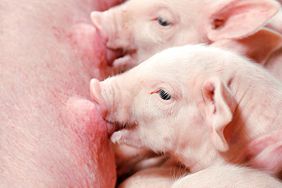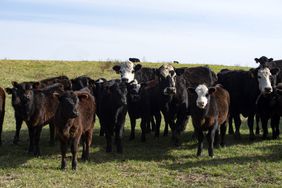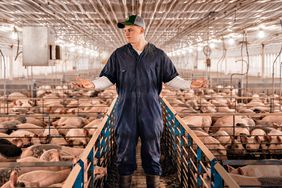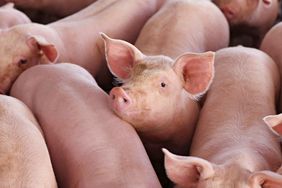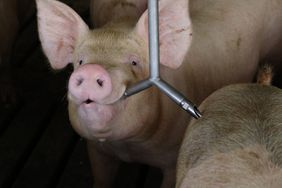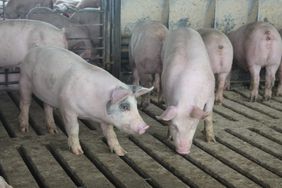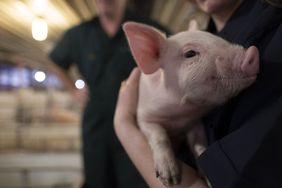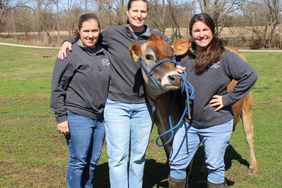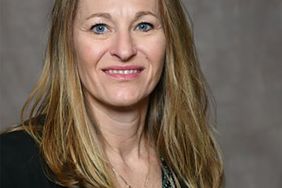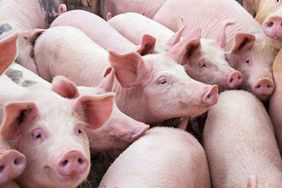:max_bytes(150000):strip_icc()/Livingston205-19-1620216-2000-4c474c1408234e0eb43dcf162a9ee797.jpg)
World Pork Expo in Des Moines, Iowa, is back on this week after a two-year absence due to the COVID pandemic in 2020 and African swine fever concerns in 2019. Hosted by the National Pork Producers Council (NPPC), World Pork Expo is the world's largest pork-specific trade show.
This morning, NPPC president Jen Sorenson, communications director of Iowa Select Farms in West Des Moines, Iowa, listed the top priorities for the swine industry, with labor issues imperative.
"There is a critical need for quality labor in the livestock sector, in particular in pork production where animal care is a top priority," says Sorenson. "We need quality workers and a dedicated workforce. You just can't throw a warm body into our farms. This is a topic that weighs heavily on farmers and pork producers. I can't emphasize enough the imperative nature and urgent nature of this issue to get help on our farms and in our harvest facilities."
Urgent administration appeal of a recent federal district court ruling striking down faster harvest facility line speeds, legal action on California's Proposition 12, and expanded export market access are also among the top U.S. pork producer priorities.
The federal court ruling, if implemented later this month, will cause tremendous harm to hog farmers across the country, says Sorenson. "We need the Biden administration to quickly intervene and prevent this disastrous scenario from becoming reality."
The federal court's decision — which takes effect on June 29 — struck down a provision of USDA's New Swine Inspection System (NSIS) allowing for faster harvest facility line speeds. NSIS, initiated during the Clinton administration and evaluated at five pilot plants over 20 years, was approved for industry-wide adoption in 2019. NSIS modernized an inspection system that had remained unchanged for more than 50 years. The court order will reduce plant capacity at six plants running at NSIS line speeds by as much as 25%. Smaller hog farmers will disproportionately bear the brunt of the court's impact, says NPPC.
Last week, Sen. Chuck Grassley (R-IA) and Reps. Jim Hagedorn (R-MN) and Dusty Johnson (R-SD) initiated letters — currently circulating for additional congressional signatories — to the U.S. Departments of Agriculture and Justice, urgently requesting the administration appeal the ruling to prevent the tremendous financial harm to American hog farmers.
Additionally, NPPC is challenging California's Proposition 12. Set to go into effect next year, it will impose arbitrary animal housing standards that reach far outside the state's borders to farms across the country, while driving up costs for both pork producers and consumers. NPPC and the American Farm Bureau Federation have filed a lawsuit in the U.S. Court of Appeals for the Ninth Circuit, asking the court to strike down Proposition 12 as unconstitutional under the dormant commerce clause. Oral arguments were held in mid-April, and a court ruling is anticipated by midsummer.
Compliance with Proposition 12 will cost individual farmers millions and put many hog farmers out of business, ultimately leading to further industry consolidation, says NPPC. Despite requiring final implementation rules by Sept. 1, 2019, just two weeks ago the state issued its proposed rules. NPPC plans to file comments by the July 12 deadline.
Other near-term priorities for U.S. pork producers include:
- Expanding export markets, crucial to the success of the U.S. pork industry. NPPC is focused on more immediate export opportunities in the Philippines and Vietnam, major pork-consuming nations dealing with African swine fever outbreaks in their domestic herds.
- Addressing agriculture labor reform. Current agriculture visa programs are designed for seasonal agriculture and do not meet the needs of pork production and other livestock agriculture. NPPC is urging Congress to address labor reform that both opens the H-2A visa program to year-round labor, without a cap, and provides legal status for agricultural workers already in the country.
- Continuing to advocate for measures to ensure foreign agriculture diseases remain outside the country. NPPC is requesting congressional appropriations to strengthen biosecurity defense at our borders.
